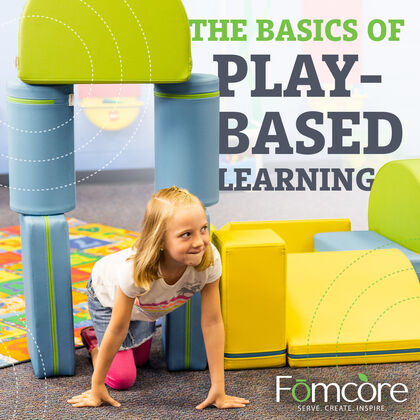Loading...

The Basics of Play-Based Learning
Play-based learning is an enriching educational approach that uses play as the primary medium for fostering growth and development, especially in young learners. Highly effective in early childhood education, this approach not only supports cognitive and social development but also nurtures emotional and physical growth, making it indispensable in shaping holistic development for these young students.
Cognitive Enhancement
Integrating play into learning environments stimulates curiosity and imagination, crucial for developing innovative thinking and problem-solving skills. As children engage in playful activities, they encounter real-world problems that require thoughtful solutions. Play-based curricula are shown to improve early reading and mathematics skills, providing rich opportunities for children to develop language skills and cognitive flexibility in a natural, engaging manner.
Social Interaction
Play is fundamental in teaching children vital social skills such as cooperation, negotiation, and empathy. Through interactive play, children learn to navigate social norms and understand peer relationships. This understanding is crucial for building strong interpersonal relationships later in life.
Emotional Growth
Play-based environments are invaluable for emotional development, offering children a safe space to express and explore their feelings. Through activities like role-playing, children learn to manage emotions and develop emotional intelligence, essential for overall success.
Physical Development
Active play helps children improve their motor skills and overall physical health, promoting better brain function and healthier life habits. Vigorous play is essential for more than just physical fitness—it also plays a critical role in cognitive and social development.
Incorporating Play-Based Learning into the Classroom
Integrating play-based learning into the classroom can be accomplished through various methods that enhance the educational experience:
- Interactive Storytelling: Utilize story time to incorporate role-playing and drama, encouraging students to act out parts of the story to deepen comprehension and engagement.
- Problem-Solving Games: Implement games that require critical thinking and collaboration, such as puzzle-solving challenges or strategy-based board games.
- Creative Art Projects: Encourage creativity through art projects that require students to use a variety of materials, helping them express their thoughts and feelings through visual arts.
- Nature Exploration: Include outdoor learning activities that involve exploring the natural environment, which can stimulate all senses and promote scientific thinking.
- Movement and Dance: Use music and movement activities to enhance physical fitness and coordination, while also reinforcing rhythm and pattern recognition in a fun way.
- Interactive Furniture/Soft Seating: Incorporate versatile furniture pieces like Fōmcore’s Lil Explorers line, which allows children to build, rearrange, and interact with their environment, promoting active learning and creativity.
Play-based learning offers extensive benefits that are crucial for the holistic development of young learners. By integrating diverse play activities into everyday educational practices, educators can create enriching experiences that facilitate both personal growth and academic achievement. Well-considered learning environments significantly enhance these strategies, demonstrating that thoughtfully designed spaces are key to successful educational outcomes.
References
- Fisher, K.R., Hirsh-Pasek, K., Golinkoff, R.M., Singer, D.G., & Berk, L.E. (2013). Playing around in school: Implications for learning and educational policy. Oxford University Press, p. 123.
- Bergen, D. (2002). The role of pretend play in children's cognitive development. Early Childhood Research & Practice, 4(1), 85.
- Goleman, D. (1995). Emotional Intelligence. Bantam Books, p. 45.
- Pellis, S., & Pellis, V. (2007). Rough-and-tumble play and the development of the social brain. Current Directions in Psychological Science, 16(2), 98.